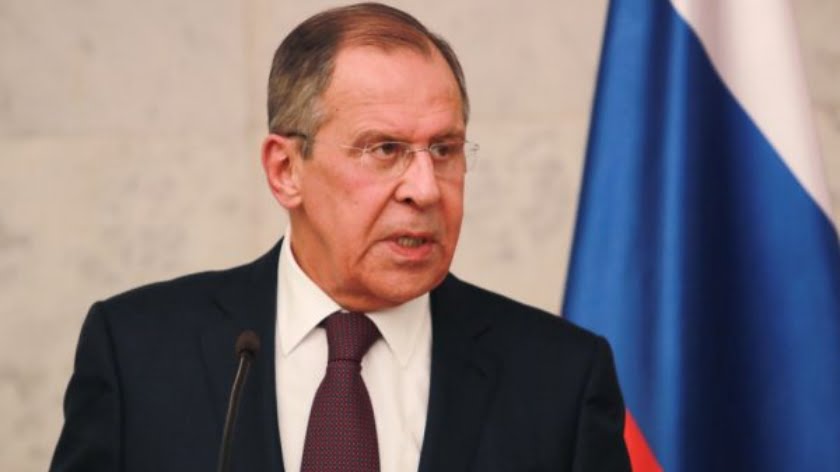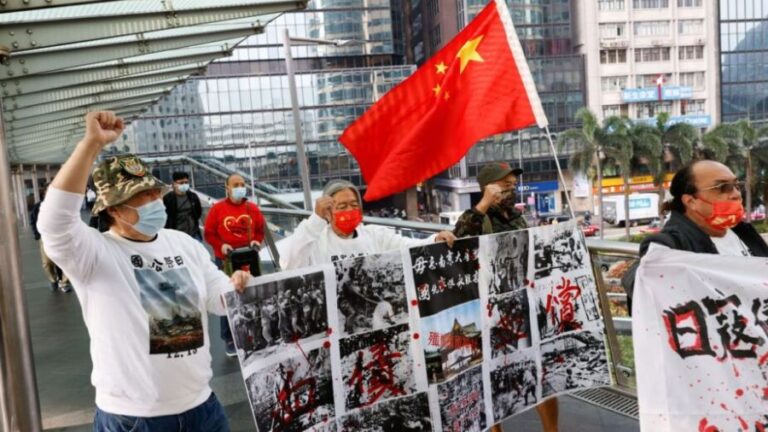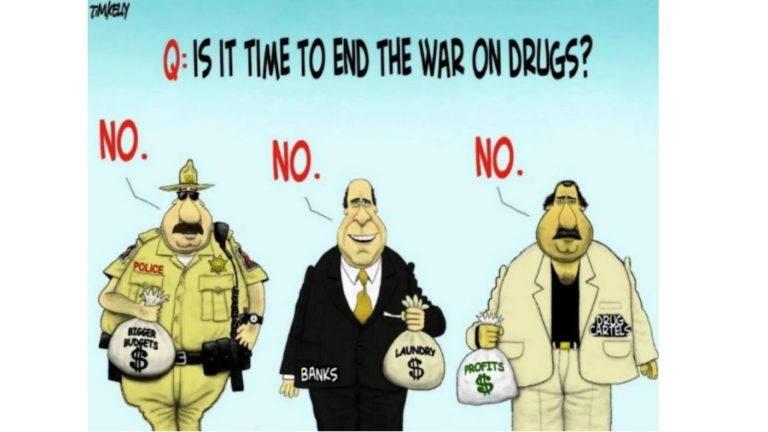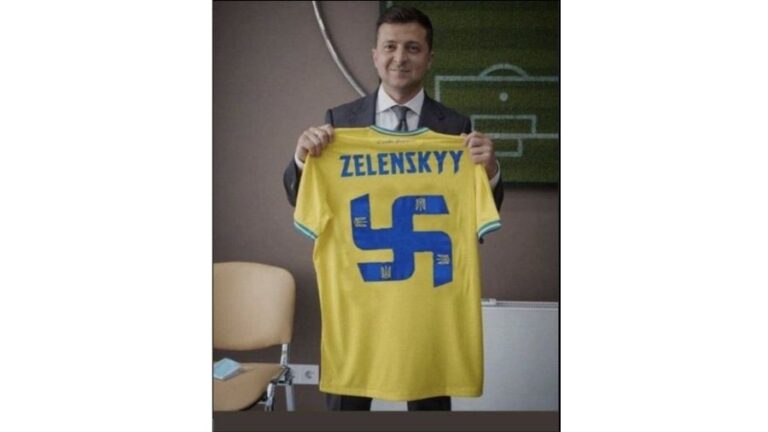Lavrov at Munich: the Lone Voice for Peace
The threats to human survival have never been greater than they are today, but the attachment to a crumbling order is blocking the way forward. Unless leaders settle on a new approach that guarantees security for everyone, the crises will continue to intensify bringing the world’s two superpowers closer to war.
Following the dissolution of the Soviet Union in 1991, the United States assumed the mantle of global leadership assigning to itself extraordinary powers to reshape the world in a way that promoted its own strategic agenda. In the last 29 years, the world has experienced a dramatic uptick in violence that has engulfed entire regions causing displacement and suffering on a scale that is almost unimaginable. US interventions have created an arc of instability that stretches from north Africa, across the Middle East and deep into Central Asia. Old disputes and rivalries have escalated into bitter sectarian conflicts or full-blown conflagrations that lead to vast destruction and loss of life. Target states, whose sovereignty is supposed to be guaranteed under international law, have been brazenly invaded and torn apart by foreign extremists that have been armed and trained by the CIA or the other intel agencies that use proxies to achieve their objectives. The outcome of these operations is plain for all to see. Entire sections of the planet have been plunged into perennial fratricidal warfare that has increased regional instability and pitted the perpetrators against a growing opposition that seeks to restore borders, preserve statehood and put an end to the wars.
The Munich Security Conference which ended on Sunday provided a unique opportunity for heads of state and other elites to discuss these matters candidly and without recriminations. Regrettably, few of the participants focused on ‘mutual security’ opting instead to comment wistfully on the West’s declining influence in global politics or pledging to commit more resources to rebuilding their military strength. Only Russia’s Foreign Minister Sergei Lavrov seemed to grasp the real purpose of the confab and devoted his entire speech to enumerating Washington’s transgressions. His intention was not to criticize the US but to shake the attendants out of their torpor so they could see the urgency of the crisis and settle on a path forward. Here’s an excerpt from Lavrov’s speech:
“The strategic stability and non-proliferation treaty system is being destroyed right before our eyes, the threshold for using nuclear weapons is getting lower, regional crises are multiplying and international law is being trampled upon, including through military interference in affairs of sovereign states, illegal sanctions and harsh protectionist measures that undermine global markets and the system of trade. We are witnessing barbarisation of international relations which degrades human habitat…..
The credibility crisis is especially acute when it comes to European affairs. The escalation of tension, the eastward advancement of NATO’s military infrastructure, the unprecedentedly massive military exercises near Russia’s border and pumping inordinate amounts of money into defence budgets create unpredictability. The Cold War patterns have once again become a reality. Before it’s too late, it is time to say no to promoting the “Russian threat” phantom or any other threat for that matter, and to go back to things that unite us.” (“Global Disorder – Other Opportunities for a New Agenda”, Sergei Lavrov, Munich)
Lavrov’s not interested in lambasting the United States to score points with the audience. He’s simply trying to convince his colleagues that the situation in the world is steadily deteriorating and that something needs to be done. He’s implying that everyone present has a responsibility to use their power to deter the US from continuing down the same suicidal path, a path that will inevitably provoke a clash with either China, Russia or Iran. Here’s more from Lavrov:
“In today’s world, Euro-Atlantic stability cannot be achieved without truly global cooperation in fighting international terrorism, illegal migration, human trafficking and other cross-border challenges. Many of them have taken on threatening proportions as a result of bloody conflicts in the Middle East and North Africa. The international community must create a favourable environment for the peoples of the countries of that region to resolve their problems through inclusive national dialogue without any outside interference….
Guided by international law, Russia will continue to promote a settlement in Syria as part of the Astana process and UN mechanisms and to help bring the Libyan parties closer together as the only way to restore the country’s statehood destroyed by NATO. Russia’s Collective Security Concept for the Persian Gulf Region is designed to provide lasting normalisation of the situation in the region. Of course, we will be promoting a balanced approach in our attempts to find a fair solution to the Palestinian-Israeli conflict based on existing international agreements. We will continue to stress that replacing legally binding decisions on the Iranian nuclear programme with illegitimate unilateral moves is unacceptable.”
Wherever you look, Russia is working to calm the waters, create formats for negotiation, enforce ceasefires, and bring about peaceful resolutions to drawn-out conflicts. Moscow’s goal is to defeat terrorism, preserve statehood from regime change wars, and create a venue for rival factions to reach mutually-acceptable settlements. Putin’s efforts for peace have not gone unnoticed. His impartiality and even-handedness have greatly boosted his credibility in the Middle East where he has replaced the US as the de-facto guarantor of regional security. Aside from Russia, there is no “honest broker.”
Lavrov again:
“The global challenges are so huge that countries can cope with them only if they join forces and strictly observe the principles of genuine multilateralism….(We must) unequivocally reaffirm the principles enshrined in the UN Charter, including sovereign equality of states and non-interference in their domestic affairs. It is imperative for all the Charter principles to be equally respected by the member countries and the UN and other international organisations’ top officials.
The international community must create a favorable environment for the peoples of the countries of that region to resolve their problems through inclusive national dialogue without any outside interference. I believe it is unacceptable to turn the territory of these countries into an arena of geopolitical confrontation and settling accounts, or use terrorists to achieve self-serving geopolitical goals.”
This statement helps to clarify a critical point, that is, Russia’s opposition to foreign meddling is a foundational tenet of state policy, not some self-righteous affectation. Putin and his lieutenants believe that meddling is a violation of state sovereignty, a red line that should not be crossed. Naturally, Americans do not believe that people in government can act according to their principles. They are so used to their own cynical, unscrupulous leaders that they think everyone else in the world operates the same way. But it’s not true. There are still honest people who don’t compromise their principles for political advantage or personal gain. Here’s more from Lavrov:
“Russia is and always has been opposed to coercive measures and has welcomed political and diplomatic means of resolving disputes, which, let us be honest, inevitably arise due to human nature itself. But peace has never been something you can get for free. It requires constant, sometimes the most laborious efforts.”
Lavrov’s remarks underscore the genuine concern of the Russian leadership who keep warning that Washington’s reckless activities and provocations are laying the groundwork for an unanticipated and catastrophic confrontation. He is encouraging his colleagues to renew their commitment to “the principles enshrined in the UN Charter”, to “multilateralism” and to “equal and indivisible security” for all, so they will pressure Washington to change its belligerent foreign policy, curtail its persistent meddling, and pull back from the brink before it is too late.
Lavrov’s ominous closing comments are worth mulling over:
“Nobel Peace Prize winner Andrey Sakharov once said: “Nuclear war might arise from an ordinary war. The latter, as is widely known, arises from politics.” It is hard to disagree with that. All diplomats, politicians, the global community, including everyone present here, are responsible for preserving peace. I am sure that we can do it if we take a responsible approach.”
Unfortunately, Lavrov was the lone voice for peace at the woefully misnamed Munich Security Conference.
By Mike Whitney
Source: The Unz Review







